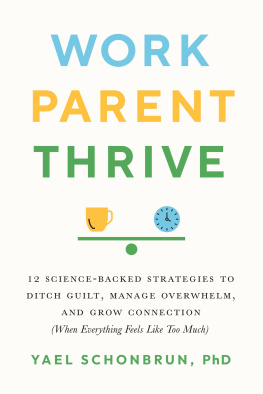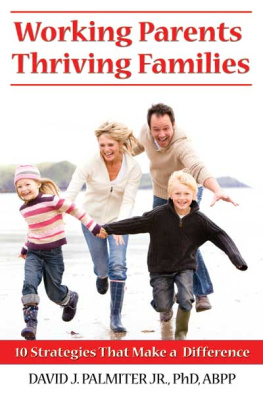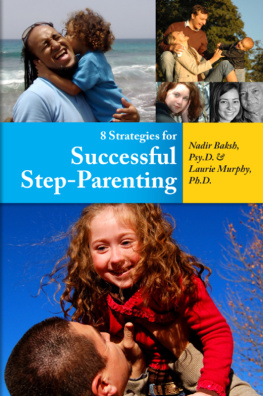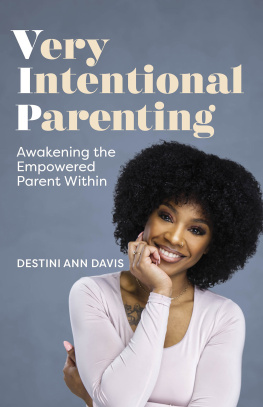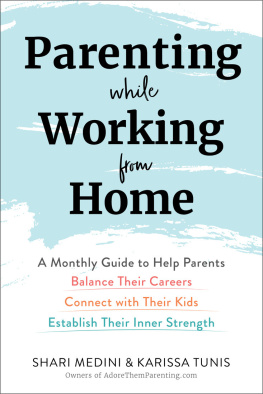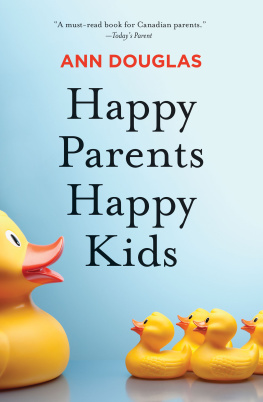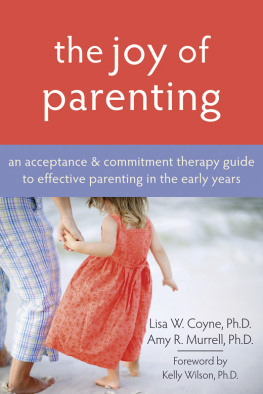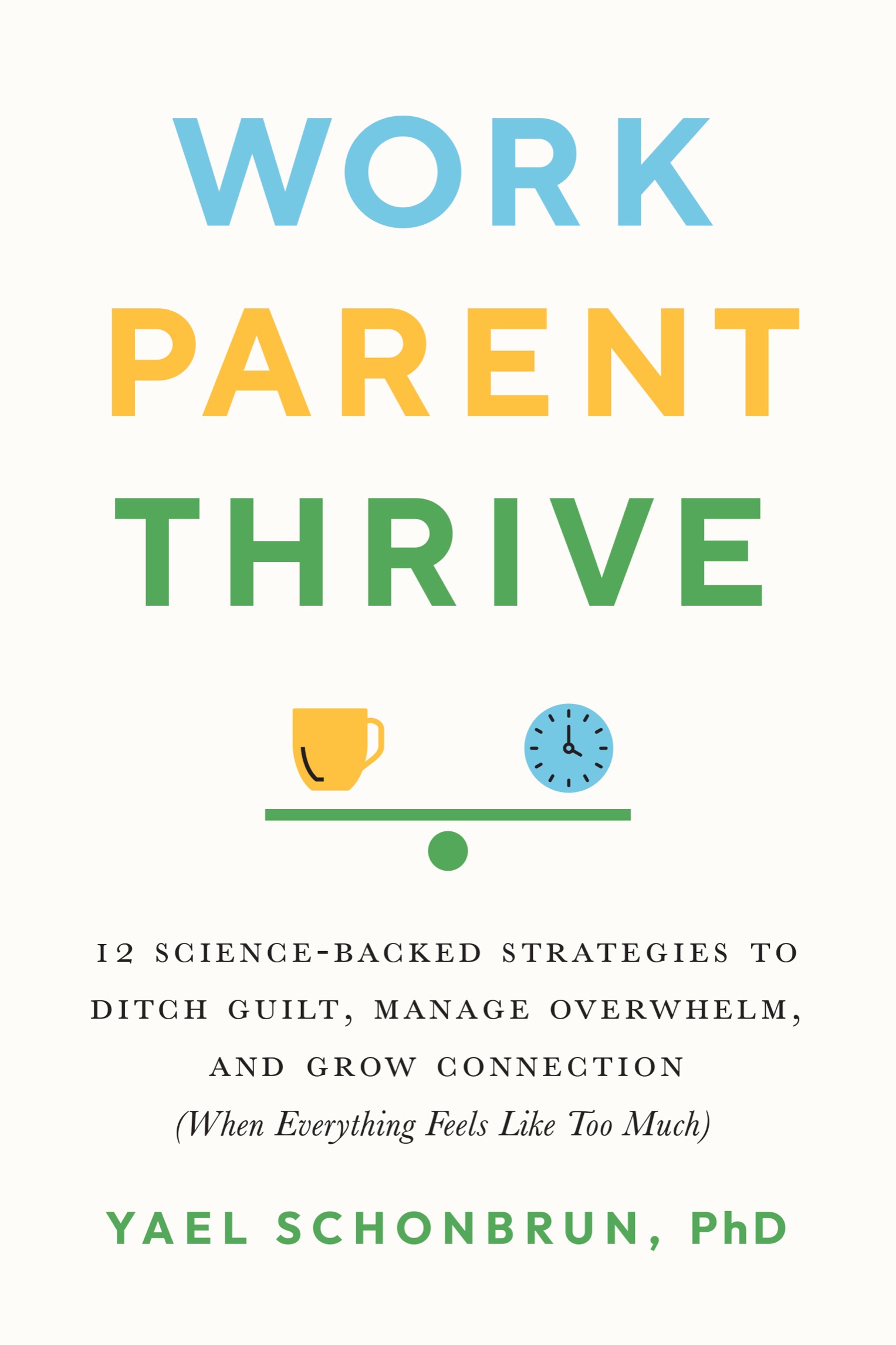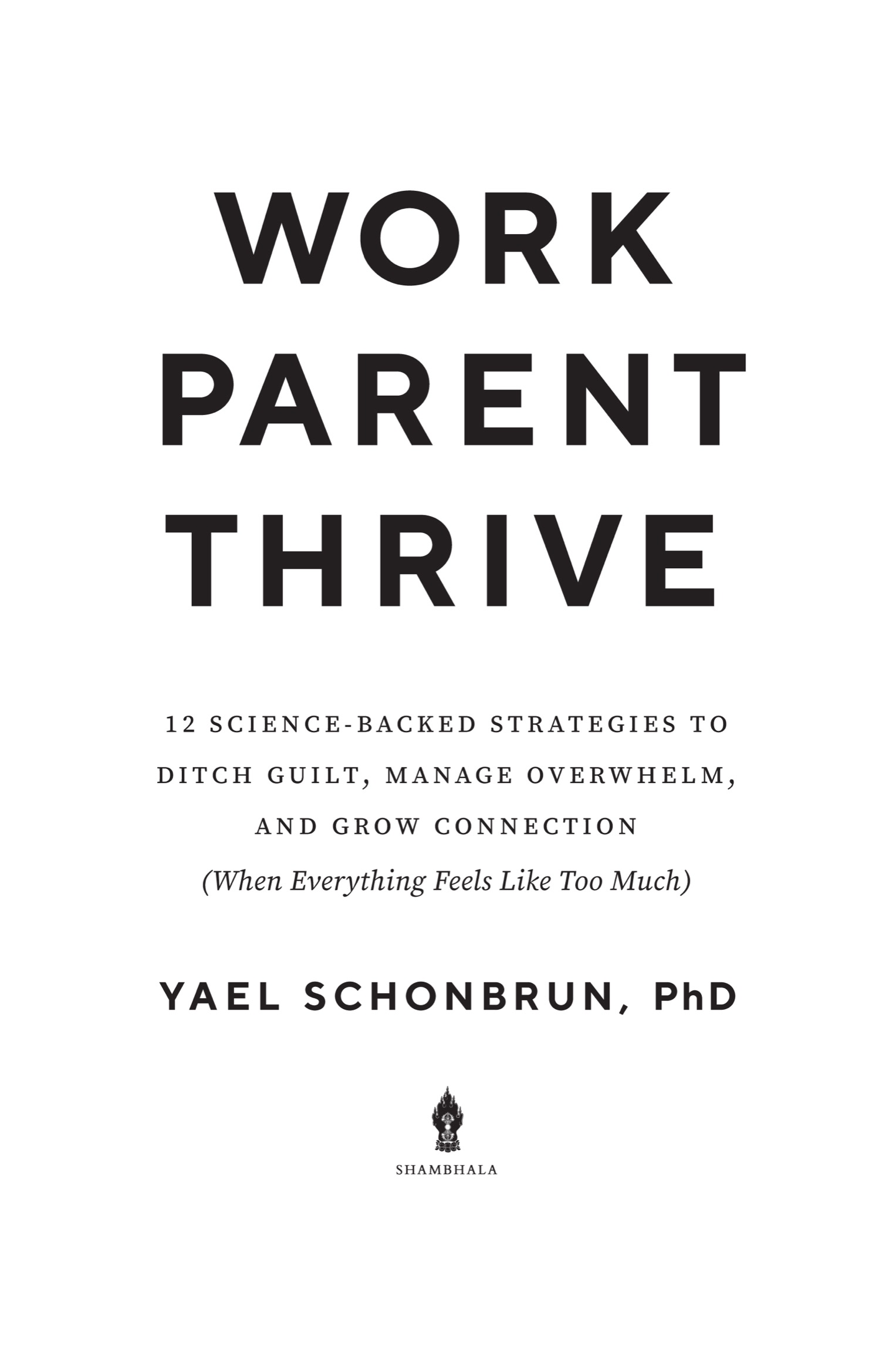Contents
Landmarks
Print Page List
PRAISE FOR WORK, PARENT, THRIVE
This might as well have been called How to Be a Happier Working Parentand it will, indeed, help you do just that.
KJ DellAntonia, the New York Times best-selling author of The Chicken Sisters and How to Be a Happier Parent.
If you want life advice from a dry scientific text, put this book down now. But if you want a book that feels like a conversation with a smart, empathetic friend whos seen it all and helped countless clients improve their livesand can help you with yoursread Work, Parent, Thrive.
Alex Soojung-Kim Pang, author of Rest
This book is for every working parent who thinks they dont have the time to read it. Make time! Yael Schonbrun combines academic scholarship, clinical expertise, and personal experience as a mother of three to offer deeply wise advice on how to manage our inner lives while we wait for society to make the outer lives of us working parents more manageable.
Barry Schwartz, author of The Paradox of Choice and Why We Work
Parenting is hard. Working is hard. Caring deeply about both is even harder. In an area rife with judgment, hot-takes, and hacks, thank goodness for Yael Schonbrun. She offers much needed nuance and complexity and provides an evidence-based framework to harmoniously integrate what, for many people, are the two most important parts of their livesfamily and craft.
Brad Stulberg, author of The Practice of Groundedness and Peak Performance
Reading Work, Parent, Thrive is like chatting with a knowledgeable best buddy, one brimming with fascinating stories, cutting-edge science, and practical tips from the therapy room. Yael Schonbrun offers a way to accept our working-parent reality and use elements from both worlds to our advantage. Its just what every working parent needs!
Michele Borba, Ed.D., educational psychologist and author of Thrivers
You likely picked up this book to find a way forward as a working parent. Thats a fine start, but not just any solution will do. You are a living, breathing human being, not a broken dishwasher. A truly effective way forward needs to help you become aware of your own self story, to focus on how you relate to your own insides, and to aid you in finding meaning and purpose. Those are the kind of processes that pay off in every area of life. It will take both knowledge and practice, but this wise and well-written book will deliver scientifically sound know-how in clear, bite-sized unitsyou just need to supply the energy and commitment to learn and to grow. Ready when you are! I can highly recommend the journey.
Steven C. Hayes, PhD, originator of Acceptance and Commitment Therapy, Foundation Professor of Psychology, University of Nevada, Reno
SHAMBHALA PUBLICATIONS, INC.
2129 13th Street
Boulder, Colorado 80302
www.shambhala.com
2022 by Yael Chatav Schonbrun
Cover art: Clock and mug icons by kornkun / Adobe Stock
Cover design: Amanda Weiss
Interior design: Amanda Weiss
Author photo: Inna Chernysh-Govorov
All rights reserved. No part of this book may be reproduced in any form or by any means, electronic or mechanical, including photocopying, recording, or by any information storage and retrieval system, without permission in writing from the publisher.
First Edition
Shambhala Publications makes every effort to print on acid-free, recycled paper.
Shambhala Publications is distributed worldwide by Penguin Random House, Inc., and its subsidiaries.
L IBRARY OF C ONGRESS C ATALOGING - IN -P UBLICATION D ATA
Names: Schonbrun, Yael, author.
Title: Work, parent, thrive: 12 science-backed strategies to ditch guilt, manage overwhelm, and grow connection (when everything feels like too much) / Yael Schonbrun, PhD
Description: First edition. | Boulder, Colorado: Shambhala Publications, [2022] | Includes bibliographical references and index.
Identifiers: LCCN 2022011543 | ISBN 9781611809657 (paperback; alk. paper)
eISBN 9780834844780
Subjects: LCSH : Parenting. | Work and family. | Work-life balance.
Classification: LCC HQ755.8 .S347 2022 | DDC 649/.1dc23/eng/20220310
LC record available at https://lccn.loc.gov/2022011543
a_prh_6.0_141664381_c1_r0
In loving memory of Raffy Chatav,
who showed me that finding joy in
our work and in our connection to others
is the embodiment of a life well lived.
CONTENTS
INTRODUCTION
THE PROBLEM OF WORKING PARENTHOOD
Nobody in the history of humanity has ever achieved work-life balance, whatever that might be, and you certainly wont get there by copying the six things successful people do before 7:00 a.m.
OLIVER BURKEMAN
I should have a solid hour and a half to get work done if I get going right away. I shuffle an untidy stack of research articles on sex trading among incarcerated women, pull out several relevant ones, and begin the work of revising the discussion section of my article. Ive just gotten into a satisfying flow when a sweet song drifts over from the room next door: Mommy, Im awaaa-ake! Without missing a beat, I finish my sentence and head to my angels room.
Im totally kidding.
Its more like this: With frustration bordering on rage, I curse everyone from my husband (for going to his office, seemingly guilt- and worry-free), the grandparents (for not being there to help out), my colleagues (for wanting this paper to go out), and my four-year-old (for being awake). Amid the frustrated rage, a seed of guilt quickly blossoms into a towering oak tree. I feel pissed off, guilty, and deeply conflicted over what to do. As my kiddos sweet song transitions to a tyrannical Mommy, COME NOW! I take a deep breath, snap my computer shut, and head to his room.
What now feels like a hundred years ago, I expected to ace the whole project of working parenthood. Id take advantage of childcare, a supportive partnership, and a flexible workplace to make sure my kids needs got met while carving a path toward research greatness. At the time I became a working parent, I was only a few years out from my PhD in clinical psychology. Id been awarded a grant from the National Institutes of Health to conduct research on treatments for couples in which one partner has an addiction, and throughout my pregnancy I had worked on a new grant application that, if funded, would allow me to get promoted to assistant professor. I fantasized about breaking enough new research ground to become so legendary that Id be the first academic psychologist invited onto Dancing with the Stars.
But then my first son was born and something deep inside of me shifted. Especially in those early days, being apart from him tied me into existential knots. It wasnt simply the huge life transition, the sleep deprivation, and the hormonal swings (though Id hazard a guess they didnt help). No, I was in a free-fall identity crisis.
Still the same ambitious person I had always been, I wanted to do interesting and important work, to apply my skills and drive outside of the privacy of my family life, and I was committed to providing financially for my growing family. Only now I was also drawn to gaze contentedly at my son for hours. I wanted to be the one meeting his needs, the one ooh-ing and ah-ing over every absolutely ordinary baby thing he did.

